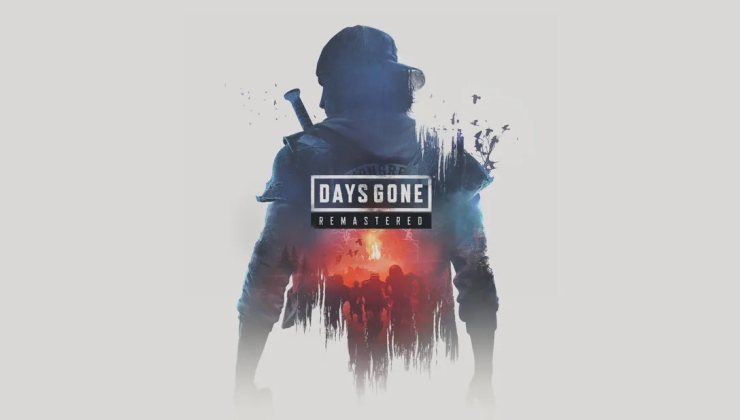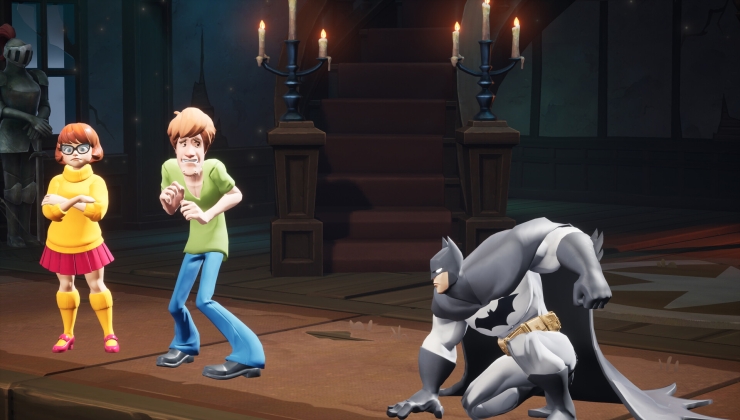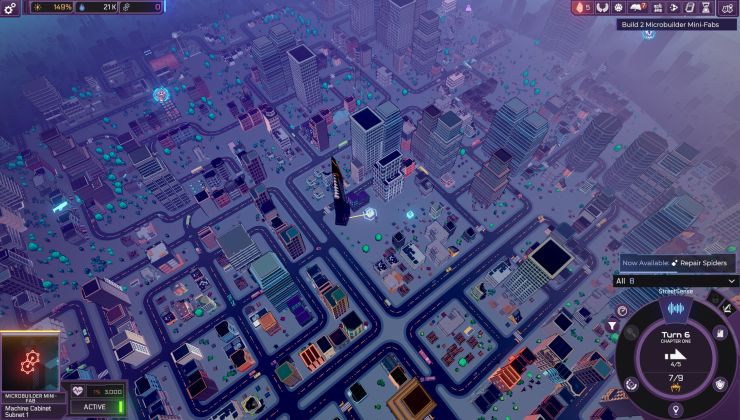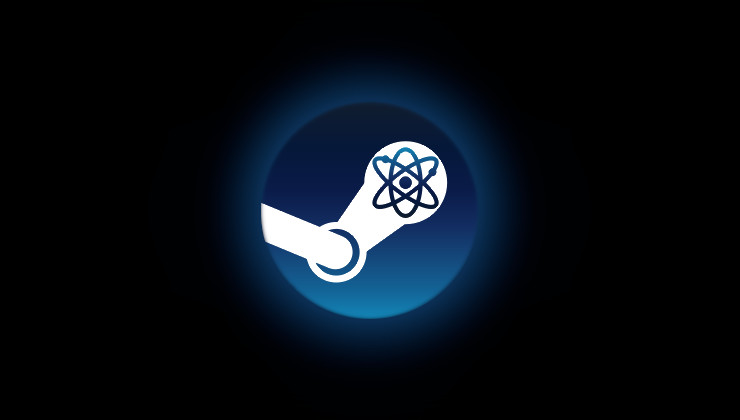As we approach launch for the Steam Deck in December, Valve has begun ramping up their info for developers with the announcement of a Steamworks Virtual Conference.
Taking place on Friday, November 12, starting at 10AM PT / 5PM UTC the topic will be specifically for the Steam Deck this time, covering these subjects:
- Steam Deck Hardware
- Development without a dev-kit
- Steam on Deck
- Proton Support
- Steam Input
- Steam Deck Verified
- APU deep dive with AMD
After each talk is done, Valve will host a live question and answer session to go through questions developers have.
Unfortunately, the event itself is locked to Steamworks approved developers. However, like a lot of Steamworks videos, it's likely it will appear on the official YouTube at some point after. If that does happen, we will let you know.
If you missed it, Valve recently held a Q&A session for developers at GI Live: London that you can see below:

Direct Link
https://www.youtube.com/watch?v=Sd8ie5R4CVE
Last edited by Shmerl on 1 Nov 2021 at 9:23 pm UTC
What's lacking is their "porting to Linux" talks they did in the past (it was called "Steam dev days" I think?). That's not a very good sign.
https://www.youtube.com/watch?v=Sd8ie5R4CVE
Because it's not a priority. It clearly didn't work in the past.
Because it's not a priority. It clearly didn't work in the past.
That worked just fine. Steam Machines didn't work. That's not the same as teaching games developers to release for Linux.
Because it's not a priority. It clearly didn't work in the past.
That worked just fine. Steam Machines didn't work. That's not the same as teaching games developers to release for Linux.
Steam Machines didn't work, because there was no software to play - because devs didn't want to port. That's the whole reason why Valve put so much effort into Proton.
Steam Machines didn't work, because there was no software to play - because devs didn't want to port. That's the whole reason why Valve put so much effort into Proton.
I can argue the opposite. Devs didn't want to port becasue Steam Machines didn't work. Software stack wasn't ready. Marketing was non existent, potential sales didn't look promising and so on. It was too early. Proton isn't the main point here even though it helps of course.
Last edited by Shmerl on 1 Nov 2021 at 11:43 pm UTC
Steam Machines didn't work, because there was no software to play - because devs didn't want to port. That's the whole reason why Valve put so much effort into Proton.
I can argue the opposite. Devs didn't want to port becasue Steam Machines didn't work. Software stack wasn't ready. Marketing was non existent, potential sales didn't look promising and so on. It was too early. Proton isn't the main point here even though it helps of course.
Even more so, a number of devs actually did port, we got a lot of games (relatively speaking) from that time in particular. Only afterwards, because Steam Machines flopped, some of those were disappointed and didn't make subsequent ports. Not all, though, it worked out for many. Steam machines failed devs, not the opposite.
The Steam Machines just weren't very compelling. It was a prebuilt PC at normal value with the Steam brand. SteamOS was certainly a disadvantage for most people, but I don't think "have to manually install Windows" was the one big problem for the audience.
But you have to add context.
- Linux library is what 7,000 - 10,000 native now?
- Successively we now have Vulkan
- For all other Windows content we have Proton
- Steam Controller & Steam Input lead to controller input for virtually all major brands
- Major Optimizations to SDL, and other Graphics & Input libraries to lower friction and make development fast and easy
- Steam Linux Runtime solved dependency differential across all distros
- Wide array of mainstream Game Engine support -- Unreal, Unity, Godot, Cry? etc...
Sure, if you were playing the short-game it may have felt underwhelming at the time, but even then for many years we got Rocket League and lots of fun with other games before Epic bought them out and "slaughtered ma boy". Lots of cool Ferral games like all the Tomb Raiders, Dawn of Wars, etc...
Even though we as humans have a inherit need to "See Pasterns" where none exist and like to compare and contrast, now that we are approaching the pinnacle of the new Linux PC Gaming age, it's hard to have the epiphany that Steam Deck is entirely unique and different from it's Generation 1 ancestor and heritage.
I'm really hoping for a Xbox 360-esk, PlayStation 2, Super Nintendo, and what Sega Genesis golden-age since those are all what? 2nd generation consoles? (Technically I realize the 2nd Generation would require Valve expand to another living room device, but the realization is pretty remarkable.)
Godspeed Mr Gaben. Many Thanks for the coming great journey!!! :)
Last edited by ElectricPrism on 2 Nov 2021 at 8:15 am UTC
Development without a dev-kit
... or "Linux installation for dummies". ;-)
Steam Machines didn't work, because there was no software to play - because devs didn't want to port. That's the whole reason why Valve put so much effort into Proton.
I can argue the opposite. Devs didn't want to port becasue Steam Machines didn't work. Software stack wasn't ready. Marketing was non existent, potential sales didn't look promising and so on. It was too early. Proton isn't the main point here even though it helps of course.
Steam Machines were overpriced hardware with no incentive to buy, when you could just download the OS and install it. I have a Steam Machine here - didn't pay a single cent for it.
Steam Machines didn't work, because there was no software to play - because devs didn't want to port. That's the whole reason why Valve put so much effort into Proton.
I can argue the opposite. Devs didn't want to port becasue Steam Machines didn't work. Software stack wasn't ready. Marketing was non existent, potential sales didn't look promising and so on. It was too early. Proton isn't the main point here even though it helps of course.
Even more so, a number of devs actually did port, we got a lot of games (relatively speaking) from that time in particular. Only afterwards, because Steam Machines flopped, some of those were disappointed and didn't make subsequent ports. Not all, though, it worked out for many. Steam machines failed devs, not the opposite.
The Steam Machines just weren't very compelling. It was a prebuilt PC at normal value with the Steam brand. SteamOS was certainly a disadvantage for most people, but I don't think "have to manually install Windows" was the one big problem for the audience.
A lot of games relatively speaking isn't enough when you can't play most of the modern games.
A lot of games relatively speaking isn't enough when you can't play most of the modern games.
Well, it was (and still is) enough for me.
Not enough to make lots of people change system though.
A lot of games relatively speaking isn't enough when you can't play most of the modern games.
Well, it was (and still is) enough for me.
Not enough to make lots of people change system though.
And that's the problem. If you can't just click and play GTA5, Fifa, Call of Duty, Dark Souls and all the other stuff, you won't reach the mass market. That just was not possible back then and a few AA games like Metro were just not enough.
A lot of games relatively speaking isn't enough when you can't play most of the modern games.
You can just install Windows, which is what people do with custom built PCs.
Not coming with Windows pre-installed isn't a deterrent for people that buy components and assemble their own PCs - but they wouldn't buy a prebuilt Steam Machine anyway, unless it had some great hardware or killer price. It would be an issue for people wanting an out-of-the-box console experience, but the Steam Machines couldn't compete at that price point and they would be a lot less "out-of-the-box" than a console even if they had Windows and it's huge selection of games.
There wasn't a very compelling reason to port games to Steam Machines. I doubt slapping Windows would have made them successful, because it wasn't just about the game selection.
On a minor point, I really think "most of the modern games" is not a good phrase. Linux has more native games than any current-gen console, and a large part of those games are "modern" - developed recently, with current tools, current themes, current genres, some with innovative ideas that had not been seen before. It's not like they are all emulated old games (and there are extremely few old native games), or even retro-styled games. What Linux didn't have was most of the AAA games, most of the popular big names with large budgets, which is completely different. Or, if you compare only with Windows and not with console, "most of the games" in general. But implying that small games and indie games aren't "modern" is a very narrow view.
Once again I arrive to the conversation feeling like I'm the only one that still sees Steam Machines 2015 as a HUGE success.
I see it as a successful boost for Linux gaming at the time. But you can hardly see it as a successful product.
Last edited by Shmerl on 2 Nov 2021 at 3:29 pm UTC
Once again I arrive to the conversation feeling like I'm the only one that still sees Steam Machines 2015 as a HUGE success.I would certainly have to agree that it was a HUGE learning experience, and that Valve does seem to have learned from it. And even that the development of the Steam Machine spurred the development of various tools, which were then built on since to pave the way for what looks like it will be success in the Steam Deck (although I mean, they haven't actually started sending them out yet, so technically it could still fail . . . but good buzz from those who have tried developer ones, plus back orders out to a couple of years, is a pretty good set of hints). And some of those same tools have improved Linux gaming more generally.
So I would have to agree that many good things came out of the Steam Machine initiative. But I still want to make a distinction between that and actually being a huge success as a project in itself. It wasn't. It was a huge learning experience partly because Valve made so many mistakes on the Steam Machine itself, most of which they are not making again this time around.
What Valve wanted was not just a learning experience and some development. The hope was that Steam Machines themselves would sell a ton of units, that all the people Valve had persuaded to do ports would make a bunch of money from having done so and that would become the new normal, that Linux would then have most of the games and become a more viable potential desktop, so much so that if Microsoft tried to make its own store a big thing and lock Steam out many people could be expected to prefer ditching Windows than Steam, thus discouraging Microsoft from trying it. None of that happened, at least not then, and Valve lost significant credibility with game companies.
Valve is lucky that so far, hints of Microsoft pushing towards trying to nobble Steam in favour of their own store have continued to fizzle. But it sure wasn't because of the Steam Machine.
A lot of games relatively speaking isn't enough when you can't play most of the modern games.
You can just install Windows, which is what people do with custom built PCs.
Which has nothing to do with the entire discussion? We're talking about Linux.
On a minor point, I really think "most of the modern games" is not a good phrase. Linux has more native games than any current-gen console, and a large part of those games are "modern" - developed recently, with current tools, current themes, current genres, some with innovative ideas that had not been seen before. It's not like they are all emulated old games (and there are extremely few old native games), or even retro-styled games. What Linux didn't have was most of the AAA games, most of the popular big names with large budgets, which is completely different. Or, if you compare only with Windows and not with console, "most of the games" in general. But implying that small games and indie games aren't "modern" is a very narrow view.
Yeah and those native games are mostly from smaller teams etc... where is Witcher 3 as a native for Linux? You didn't have it back then.
You can just install Windows, which is what people do with custom built PCs.
Which has nothing to do with the entire discussion? We're talking about Linux.
I'm talking about why Steam Machines failed, and how it is not because of Linux. "SteamOS" didn't help, but it was not the main reason.








 How to set, change and reset your SteamOS / Steam Deck desktop sudo password
How to set, change and reset your SteamOS / Steam Deck desktop sudo password How to set up Decky Loader on Steam Deck / SteamOS for easy plugins
How to set up Decky Loader on Steam Deck / SteamOS for easy plugins
See more from me